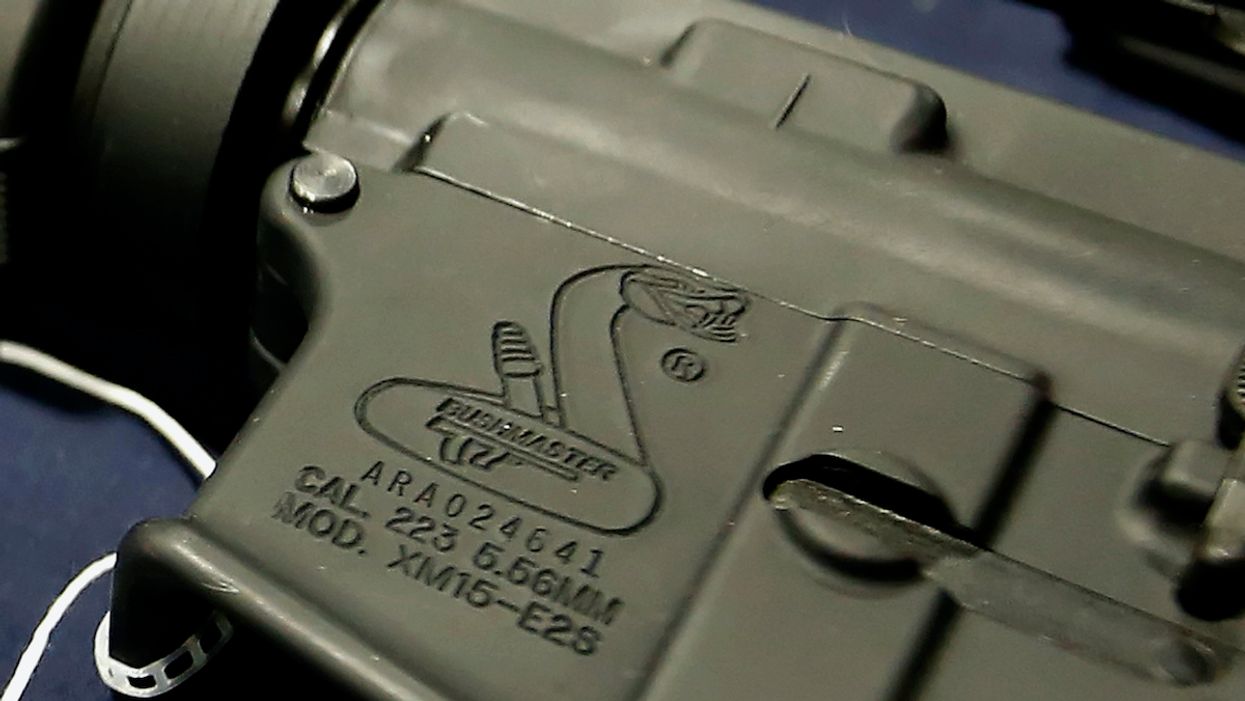
© 2025 Blaze Media LLC. All rights reserved.
SCOTUS denies gunmaker petition, allows Sandy Hook families to sue Remington over massacre
November 12, 2019
This isn't over yet, though
In an order issued Tuesday morning, the Supreme Court denied Remington Arms' petition for the court to decide whether or not the gun manufacturer could be sued by the families of victims of the 2012 Sandy Hook massacre in Connecticut, thereby allowing the lawsuit to continue through the lower courts for now.
The case of Remington Arms v. Soto deals with whether Remington — which manufactured the modern sporting rifle used in the massacre — can be held liable in the matter because of how it advertised the gun.
While Congress passed a federal law in 2005 to shield gunmakers from liability when their products are used for criminal acts by third parties, the plaintiffs in the case claim that the advertising strategy violated Connecticut law governing fair trade practices by supposedly encouraging illegal use by associating it with the military.
"The Bushmaster Defendants' militaristic marketing reinforces the image of the AR-15 as a combat weapon used for the purpose of waging war and killing human beings," the initial complaint said.
Basically, the argument here is that because of how the gun company portrayed the gun in its advertising, the killer was more inclined to steal that firearm from his mother in order to commit the atrocity.
In a 4-3 decision, Connecticut's Supreme Court held that the company's marketing was an unfair trade practice and remanded the case back to the lower courts for adjudication.
Independence Institute research director David Kopel, who joined in an amicus brief on the case, said that the Connecticut ruling is a problem for both the First and Second Amendments. "The notion that it is illegal for firearms advertisers to use 'militaristic' themes is absurd," Kopel writes:
The exercise of the right to keep and bear arms has always had a relationship to military use of arms. For example, the first clause of the Second Amendment is about "a well regulated militia." Colonial assemblies, early state legislatures, and Congress in 1792 mandated that American citizens possess firearms and edged weapons. The federal and state arms mandates were not enacted by legislatures insistent that everyone go duckhunting. They were enacted so that the population would have combat weapons. If guns were not useful for interpersonal fighting, they would not be "arms," and would not be protected by the Second Amendment.
Tuesday's order rejecting the appeal is part of a long list of rejected cases, and the high court provided no explanation for why it didn't take the matter up. But the rejection doesn't mean that this fight is anywhere near over.
Last month, University of Richmond School of Law professor Carl Tobias told the Daily Caller that the petition may have been brought to the Supreme Court too soon in the legal process.
"The Connecticut Supreme Court decision is far from a final judgment," Tobias explained. "The case will return to the lower court for discovery and a jury trial, unless the U.S. Supreme Court decides to hear it. The justices seem unlikely to hear it until the case has moved more fully through the state court system — that could consume several years."
Want to leave a tip?
We answer to you. Help keep our content free of advertisers and big tech censorship by leaving a tip today.
Want to join the conversation?
Already a subscriber?
more stories
Sign up for the Blaze newsletter
By signing up, you agree to our Privacy Policy and Terms of Use, and agree to receive content that may sometimes include advertisements. You may opt out at any time.
© 2025 Blaze Media LLC. All rights reserved.
Get the stories that matter most delivered directly to your inbox.
By signing up, you agree to our Privacy Policy and Terms of Use, and agree to receive content that may sometimes include advertisements. You may opt out at any time.



